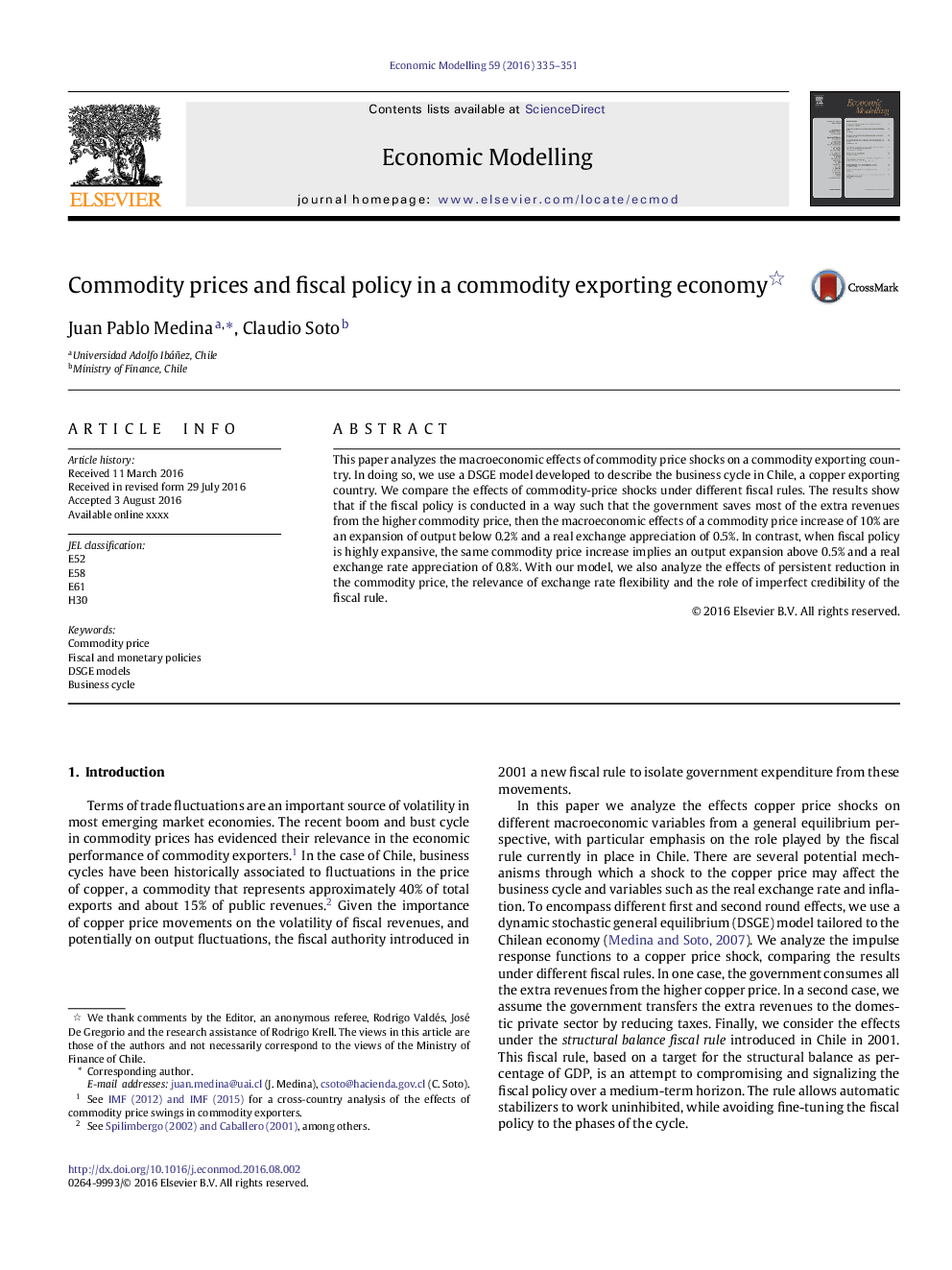| Article ID | Journal | Published Year | Pages | File Type |
|---|---|---|---|---|
| 5053299 | Economic Modelling | 2016 | 17 Pages |
Abstract
This paper analyzes the macroeconomic effects of commodity price shocks on a commodity exporting country. In doing so, we use a DSGE model developed to describe the business cycle in Chile, a copper exporting country. We compare the effects of commodity-price shocks under different fiscal rules. The results show that if the fiscal policy is conducted in a way such that the government saves most of the extra revenues from the higher commodity price, then the macroeconomic effects of a commodity price increase of 10% are an expansion of output below 0.2% and a real exchange appreciation of 0.5%. In contrast, when fiscal policy is highly expansive, the same commodity price increase implies an output expansion above 0.5% and a real exchange rate appreciation of 0.8%. With our model, we also analyze the effects of persistent reduction in the commodity price, the relevance of exchange rate flexibility and the role of imperfect credibility of the fiscal rule.
Related Topics
Social Sciences and Humanities
Economics, Econometrics and Finance
Economics and Econometrics
Authors
Juan Pablo Medina, Claudio Soto,
